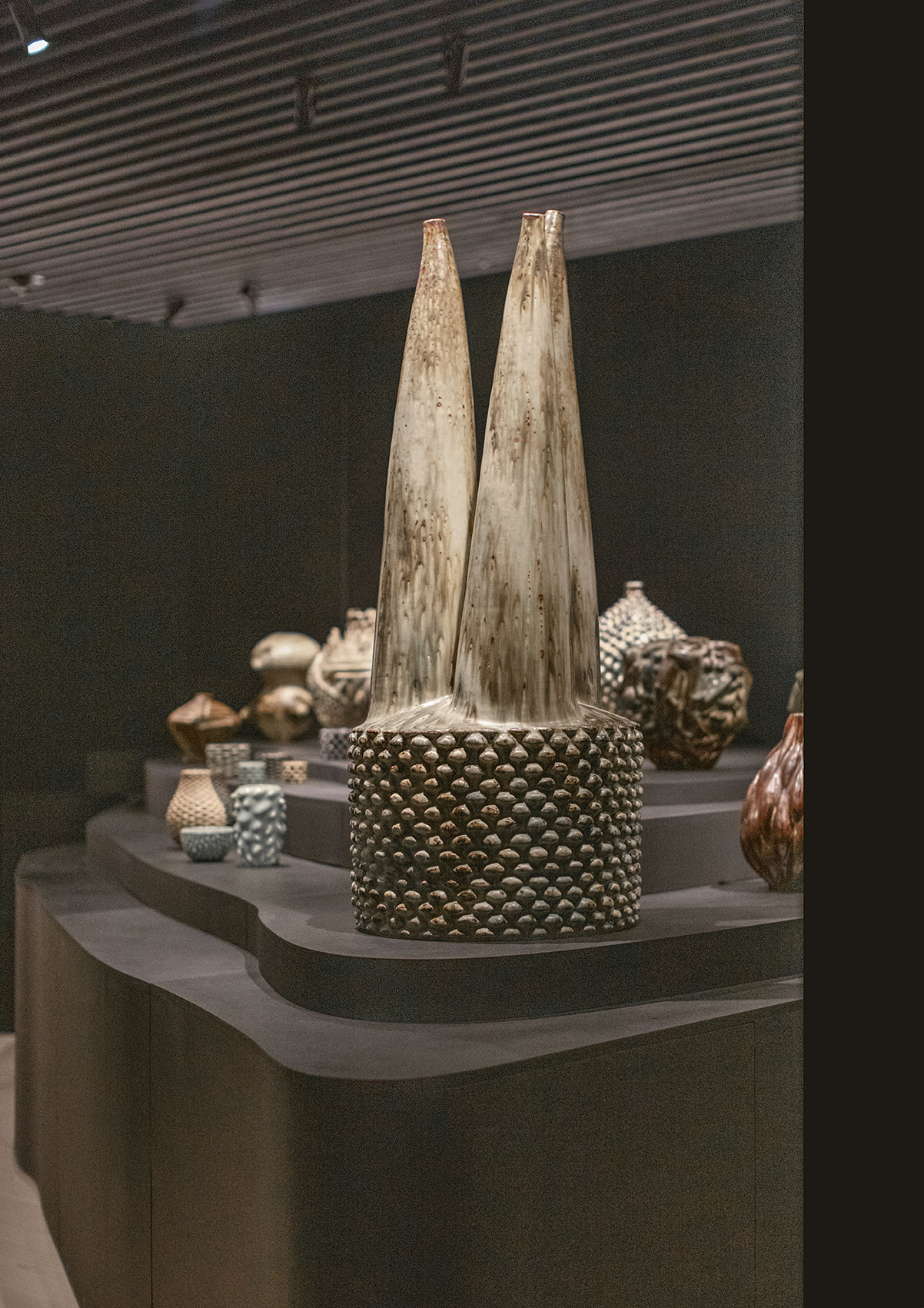FLORA DANICA 2.0

The short version of her business concept is as follows: Nathalie gathers plants, mainly weeds, which she presses and uses to print floral motifs on discarded textiles from selected steam laundries.
Most of the pieces are tablecloths, which are turned into new, higher-value tablecloths or into cushions,
wall hangings or – in response to the current situation – face masks.
October 2021
In a verdant courtyard in central Odense, the spirit of the time is in full bloom. Just over a year ago, Nathalie Gaia Dahl established her company Von Linné circular designstudio here, with support from Odense Waste Management’s project ‘Cirkulær i Odense’, a project that helps entrepreneurs realize sustainable and circular ideas.

The short version of her business concept is as follows: Nathalie gathers plants, mainly weeds, which she presses and uses to print floral motifs on discarded textiles from selected steam laundries. Most of the pieces are tablecloths, which are turned into new, higher-value tablecloths or into cushions, wall hangings or – in response to the current situation – face masks.
The botanical prints have classic references but are still refreshingly new. Things are going well for Nathalie, who, not least, is receiving many international requests. #botanicalart and #circulareconomy have many followers on Instagram, and this is where the customers discover and find her brand.
CIRCULAR LUXURY
There are plants everywhere, inside and out, and there are herbs in the tasty tea Nathalie serves. She is wearing a kimono with a floral design. The fabric looks like heavy silk satin, but the kimono too is made from a tablecloth provided by one of the steam laundries that supply Nathalie’s company.
Her collectiondoes not include clothing yet. The kimono was made for her by Morten, who shares a shop with Nathalie. ‘But I dream that my collaboration with him or other, future collaborations can result in a small made-to-measure clothing collection,’ she reveals. Her dream does not include putting her botanical prints into mass production, however. ‘People suggest that I photograph my motifs and then reproduce them as digital prints. I just don’t see the point of that all,’ she says. ‘It might be profitable in the short term, but that just isn’t where I want to go with my company. My work is all about one-offs.’
Learn much more about Von Linné in HÅNDVÆRK bookazine no. 4, grab your copy here
I en frodig indergård i det centrale Odense blomstrer indbegrebet af tidsånden. Her etablerede Nathalie Gaia Dahl sig for godt et år siden med sin virksomhed “Von Linné circular design studio”, støttet af Odense Renovations projekt “Cirkulær i Odense”. Et projekt, som giver mulighed for at hjælpe iværksættere i gang med deres bæredygtige og cirkulære ideer.
Den korte version af virksomhedsbekrivelsen lyder: Nathalie samler planter, fortrinsvis ukrudt, hun presser planterne og benytter dem derefter, når hun trykker blomstermotiver på kasserede tekstiler, som hun får fra et antal dampvaskerier. Vi taler primært om duge, som enten bliver til duge med en ny og højere værdi, til puder eller til vægophæng, i skrivende stund også til mundbind.
De botaniske print har klassiske referencer, men er samtidig forfriskende nye. Det går godt, ikke mindst får Nathalie mange internationale forespørgsler, fortæller hun. #botanicalart og #circulareconomy har mange følgere på Instagram, og det er fra Instagram, kunder finder vej.

CIRKULÆR LUKSUS
Der er planter overalt, både indenfor og udenfor, der er også plantedele i den velsmagende te, som Nathalie byder på. Selv er hun iklædt en blomstret kimono. Stoffet ser ud som en tung silkesatin, men også kimonoen er syet af en dug fra et af de dampvaskerier, som leverer til Nathalies virksomhed. Der er ikke beklædningsgenstande i kollektionen endnu.
Kimonoen her har Morten, som Nathalie har delt butik med, syet til hende. “Men jeg drømmer om, at samarbejdet med ham eller andre kommende samarbejder munder ud i en lille ‘made to measure’ tøjkollektion”, røber hun. Hvad hun derimod ikke drømmer om, er at få sine botaniske print i masseproduktion.
“Folk spørger, om ikke mine motiver med fordel kunne affotograferes og siden digitalprintes. Det kan jeg slet ikke forestille mig”, siger hun, “det kan godt være, at det ville give en umiddelbar økonomisk gevinst, men det er slet ikke den vej, jeg vil med virksomheden, jeg arbejder med unika.”
Du kan læse den fulde artikel i bookazine no. 4. Køb bookazinet online her
#theplantbasedissue

Related stories

Sky Rope

The blue yarn

Triumph & Catastrophe



